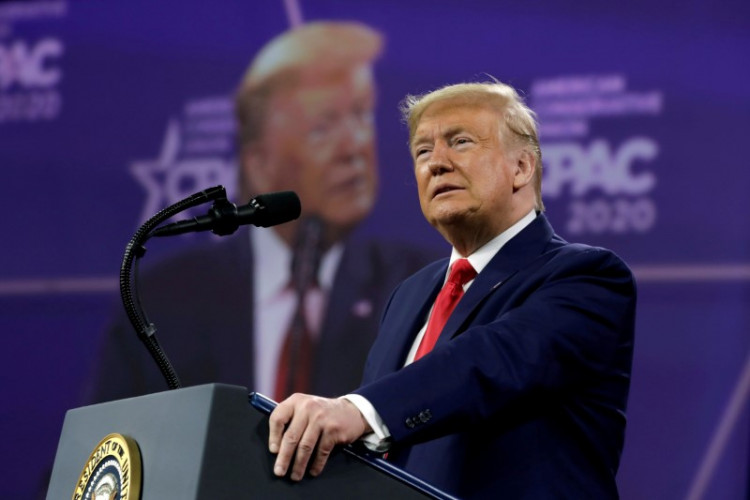President Donald Trump announced Thursday that tariffs on imports from Mexico and Canada will go into effect on March 4, following a temporary pause. Additionally, China will face an extra 10% tariff on its exports to the U.S. on the same date, marking a significant escalation in the administration's trade policies.
The decision follows weeks of uncertainty over whether the previously delayed tariffs on North American imports would be enforced. In a Truth Social post, Trump confirmed the timeline and cited ongoing drug trafficking concerns as justification.
"We cannot allow this scourge to continue to harm the USA, and therefore, until it stops, or is seriously limited, the proposed TARIFFS scheduled to go into effect on MARCH FOURTH will, indeed, go into effect, as scheduled," Trump wrote.
The president claimed that despite commitments from Canada and Mexico to increase border security efforts, illicit drugs, particularly fentanyl, were still flowing into the United States at "very high and unacceptable levels."
China, which has already been subject to multiple rounds of U.S. tariffs, will see an additional 10% duty imposed on its exports, according to Trump's post. "China will likewise be charged an additional 10% Tariff on that date," he wrote.
The White House has offered conflicting statements on the timing of trade penalties. Earlier Thursday, Kevin Hassett, director of the National Economic Council, suggested a different timeline during an appearance on CNBC's Squawk Box.
Referring to Trump's remarks at a Cabinet meeting a day earlier, Hassett said, Trump in that meeting "extended by saying that we're going to deal with Mexico and Canada, presumably the same time we deal with everything else."
Hassett's statement suggested that a decision on tariffs for all countries would come only after a study set for release on April 1. Trump's post, however, confirmed that the Mexico, Canada, and China tariffs would take effect earlier than that.
The announcement adds further uncertainty to U.S. trade relations. The 25% tariffs on Mexican and Canadian imports were first authorized in early February but were postponed by one month as the two countries worked to address U.S. border security concerns. Experts now question whether additional concessions from Mexico and Canada could delay implementation once again.
Meanwhile, China's inclusion in the latest round of tariffs is expected to heighten tensions between Washington and Beijing. Trump has previously accused China of being a major supplier of fentanyl precursors used by drug cartels. China has denied responsibility, arguing that U.S. domestic policies are to blame for the opioid crisis.
Trump's broader tariff strategy remains in flux. In addition to the March 4 measures, the president has threatened "reciprocal tariffs" on all nations imposing duties on U.S. goods, a policy set to take effect on April 2. He has also floated new tariffs on automobiles, lumber, pharmaceuticals, and other imported goods.






